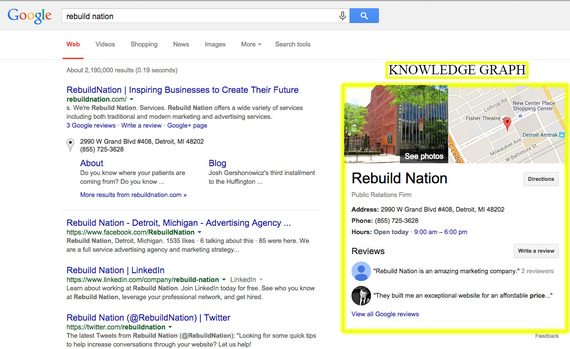Shrouded in secrecy, muddled by shadows and hearsay, are changes that will effect everyone. There is no escape...
This is not the introduction to an upcoming network sci-fi thriller, nor is it a warning that winter is coming. Google is making moves.
In April, Google updated its mobile search algorithm, favoring mobile friendly websites. This week, team Google updated Google's login procedure. Rather than typing in your email address and password on one page, the procedure is now split into to two steps. Users will enter their login information and press a link to continue. The second page will then greet them with their name and photo and ask for their password. Although it seems like more work, an extra step in an easy process, Google is most likely moving away from the traditional username/password logins.
Android devices, for example, are capable of remaining unlocked as long as a linked blue tooth device is in close proximity. They also are capable of facial recognition, so, yes, we are moving closer to the network sci-fi thriller technology. Google is most likely looking to help lead this charge.
Since Google holds 75.2% of the U.S. Search market, as of January 7, 2015, and 81.7% of the U.S. mobile search market, as of March 20, 2014, it's important, and fun, to attempt to demist where their next major changes will be. Here are three predictions for the future of Google, which affects everyone from individuals, to small business to corporate empires...
(Note: these are predictions, not announced updates.)
1. Google is clearly going mobile, and not just on cellular level. With the invention and rising push for Smartwatches it's clear that Google's interface will adapt, both mobile and online. In order to accommodate the smaller screens and with the increasing ability to predict results, Google will most likely shift to a more predictive first results search page. Already, when a search is entered into Google, the predicted result, the "knowledge graph" of information to the right of the page appears. For example if you searched for a movie, like Pulp Fiction, you'll see images, a plot summary, basic info, reviews, and ads for how to watch the film, all stored in one distinct rectangle. In the future, this predictive, "I'm feeling lucky" information will be all that the user sees, with an option to click for more. It will be littered with links to Google affiliates, like YouTube, and other major sites, IMDB and Wikipedia, for example. Users should be able to scroll through basic information, like cast and what other people have searched for. It will assist users in finding, with greater ease, the page they were looking for on their phone or wrist.
2. Geotracking will become more, and more relevant in advertising. We've all "Allow[ed] Google [or some other app] to use our current location", and by putting more tracking software on our wrists, sunglasses, phones and who knows what else in the future, it's pretty clear that location-specific ads are going to get more in-depth and quicker. Imagine walking by a coffee shop on Main Street and getting a notification that for the next hour they're running a "dollar off deal on Caramel Macchiatos", your favorite-drink! How did they know it was your favorite drink? You've most likely bought a few machaitos from this shop and similar locations, and paid for them using credit card apps on your phone. All of this data is tracked and recorded, and based on your proximity to this coffee shop, time of day, previous searches/purchases, and a multitude of other factors, the algorithm has determined you're a prime candidate for a coffee-deal. We predict that your search history in conjunction with where you are will alter what ads are "pushed to notify" you and based on how you react, will alter what advertisements you see online.
3. SEO is going to change, drastically. This is a big one, and will take time. With the Mobilegeddon update behind us, the future is becoming clearer. Rankings will still be important, but not the end-all-be-all for where a page sits on search results. Google is moving towards favoring sites that are easier for users to find the information they are looking for. There are three factors that are most likely to increase in weight regarding how sites rank on Google: how updated the content is, bounce rate and the time users spend on a site. Stats show that 55% of visitors spend less than 15 seconds on a website, and this number is likely inflated. Certainly some users only need 2 seconds on a page to find what they're looking, a phone number for example, but future Google will have an answer for that. The "knowledge graph", from point one, which provides information without needing to click a link. There are, and still will be, many searches that will require users to click through sites to find relevant information. Today, users click a link, scan the page and if they do not see what they want, they close the tab. Google, in an effort to create a more convenient interface, will favor sites in which users spend more time. These are the pages searchers are most likely looking for. Having fresh content, which is already important, will hold a greater weight in the future. Information is moving faster and faster. The current SEO ranking process, oh the glory days, will not be capable of updating as fast as information is capable of being uploaded, so a change here is inevitable.
While these changes will certainly take time and a multitude of other shifts will happen in the meantime, it's always good to keep a pulse on where Google is going. It effects us all, for better and for worse.
This blogger graduated from Goldman Sachs' 10,000 Small Businesses program. Goldman Sachs is a partner of the What Is Working: Small Businesses section.


